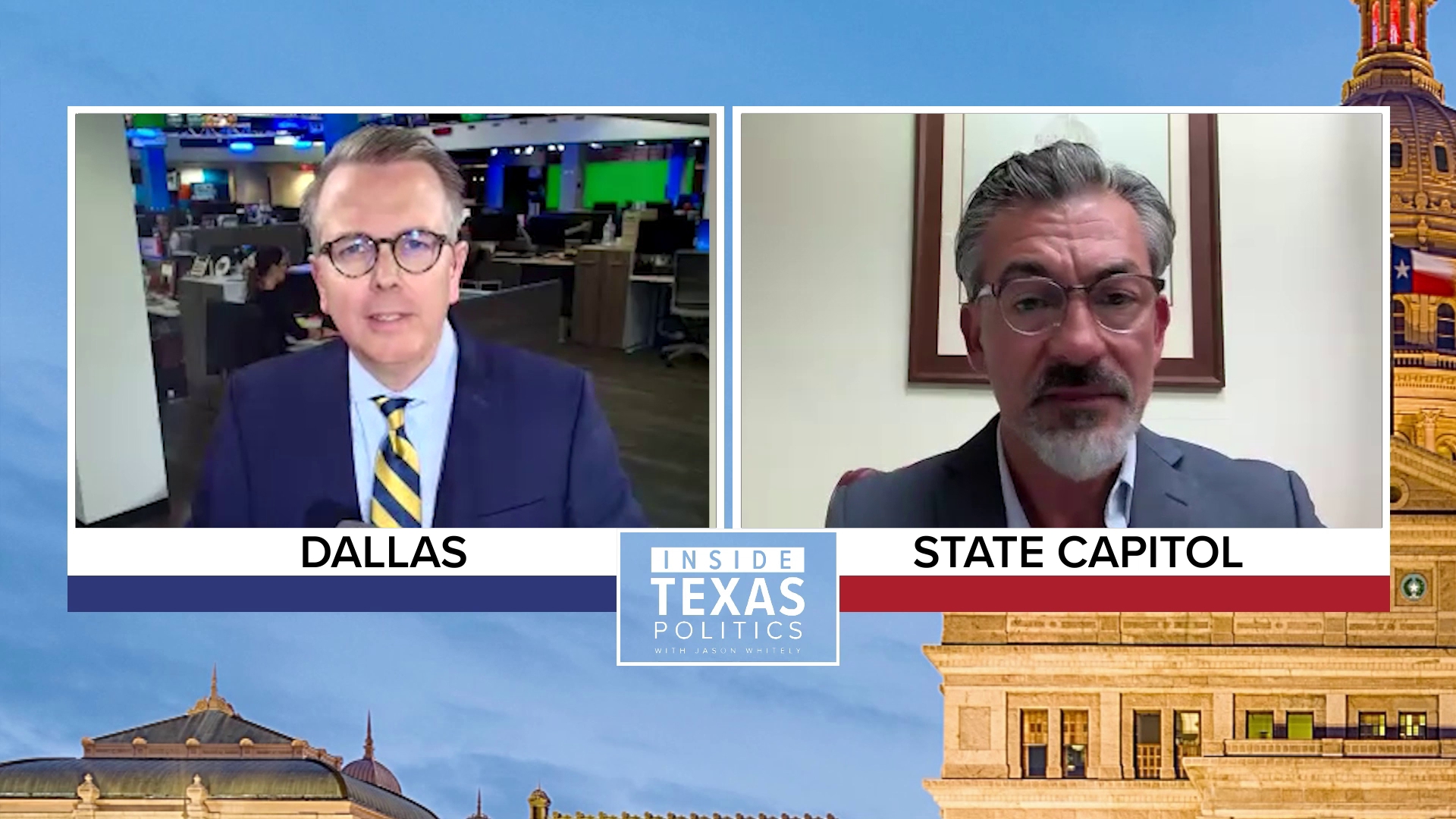DALLAS — State Representative Ramón Romero, Jr., D-Fort Worth, said he and other Democratic lawmakers have yet to hear back from the U.S. Department of Justice after they asked the organization to oversee the Nov. 5 election in Texas.
But they hope to get an answer before early voting kicks off Oct. 21.
Romero said they fear possible voter rights violations as the state enforces its election laws.
“Good people are going to pay the price for doing the good work within their communities to make sure that people get out and vote,” Romero told us on Inside Texas Politics.
Representative Romero said he’s helped folks do just that since he was a child.
He said one example is translating for an elderly community that may not fully understand the language.
The Fort Worth Democrat also points to communities that lack broadband access.
“So many parts of Texas don’t have internet access the way you and I have. It’s not easy to access information. And they rely on people that they go to church with. They rely on people that they’re at the community center with,” he explained.
Much of this dispute stems from S.B. 1, the sweeping voting bill passed in 2021 that, among other things, restricts how and when voters can cast ballots. It also established new rules and penalties for voter assistance.
Specifically, SB 1 made “ballot harvesting” a third-degree felony, a punishment that includes up to ten years in prison and up to $10,000 in fines.
Ballot harvesting is when someone collects absentee ballots on behalf of someone else and submits them.
But Texas Democrats have long argued the language is too vague and the law will punish legitimate – and perfectly legal - efforts to help voters.
“I said it when this bill was on the floor, it’s not about making it easier to vote and harder to cheat," Romero argued. "This is about creating real simple errors and calling it cheating, and then saying I want the taxpayers to pay for your incarceration for 10 years. I think most Americans would say, 'look, that’s not where we want to go.'"
A federal judge recently agreed with Democrats and blocked the ballot harvesting aspect of the law calling it unconstitutional because it was too vague and restricts free speech.
But Attorney General Ken Paxton appealed that decision to the 5th Circuit Court of Appeals, which temporarily blocked the federal judge’s ruling.
The 5th Circuit’s temporary stay was to last at least through Oct. 10. But still, no word if the judges will lift it or make it permanent.
Many organizations have filed different lawsuits against other sections of the law, but those have yet to be ruled on.

